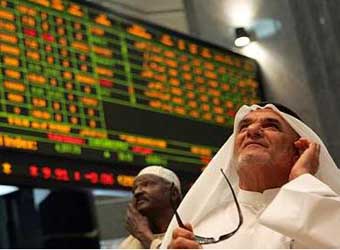Gulf stock markets may have a slightly firm tone on Sunday, buoyed by positive global trends and news of the initial public offer of the distribution unit of Abu Dhabi National Oil Co.
Major global and U.S. stock indices set fresh all-time highs on Friday while Brent oil rose 31 cents to settle at $63.86 a barrel.
ADNOC’s unit set an indicative price range for its IPO of 2.35 to 2.95 dirhams; at the top of the range, the deal could be valued at 7.38 billion dirhams ($2.01 billion), assuming it sells a maximum 20 percent. That would make it the biggest IPO in the UAE since 2007.
The company’s valuation implies a 2018 dividend yield of 6 percent to 7.5 percent and a 2019 dividend yield of 4 percent to 5 percent. This could help to attract fresh funds and liquidity to the Abu Dhabi bourse.
In Saudi Arabia, Banque Saudi Fransi could come uner pressure after the central bank said it faced an unspecified fine over irregularities in an employee incentive programme. However, the investigation into the irregularities was already well-known and official action had been anticipated by investors.
The market may gain some support from news that the regulator will further ease requirements for foreign institutional investors in the stock market; among other steps, the minimum value of assets under management needed for a foreign institution to qualify as an investor would fall to 1.875 billion riyals ($500 million) from 3.75 billion riyals.
Crown Prince Mohammed bin Salman said in a New York Times interview published at the weekend that about 95 percent of about 200 businessmen and officials implicated in a sweeping crackdown on corruption were agreeing to financial settlements of charges against them- a possible indication that the probe, which has unsettled the stock market, could start to wind down in most areas.
Qatar’s stock market fell on Thursday after index compiler MSCI said it might shift to using offshore exchange rates to value the market, because sanctions against Doha had made it more difficult for investors to obtain riyals.
After the close on Thursday, the Qatari central bank sought to reassure investors that it was trying to prevent a negative decision by MSCI, saying it was “coordinating regularly with all banks and financial institutions to follow up banking operations and ensure the processing of all procedures and transactions as normal.”
Source: Reuters



